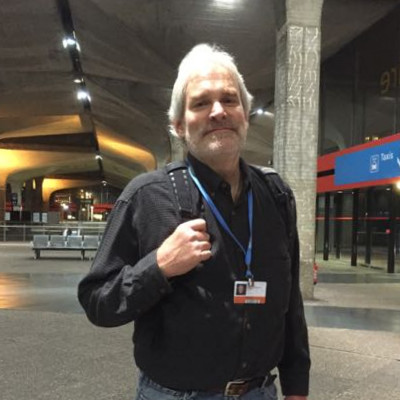
Editor's Note: This post was originally published on GlobalWarmingisReal.com
In a moving address at the opening session to the 21st Session of the Conference of the Parties (COP21), President Barack Obama called on world leaders and delegates assembled in the plenary hall at Le Bourget for resolve in the coming two weeks of negotiations, keeping in mind the long-term implications of the results.
"Our generation may not even live to see the full realization of what we do here,” Obama said at the close of his speech. "But the knowledge that the next generation will be better off for what we do here – can we imagine a more worthy reward than that?"
Summoning the unprecedented momentum going into the start of COP21, Obama joins nearly 150 other heads-of-state at COP21 who are intent on seeing the ambition translate into a global climate pact.
By afternoon, the "Blue Zone” at COP21 was buzzing with activity reporting this historic gathering of leaders in common resolve. A 2:30 press conference held by the U.S. Climate Action Network allowed leaders from several U.S.-based NGOs to offer their reactions to Obama’s speech earlier in the day.
Here is a sampling:
350.org
May Boeve, executive director of 350.org, said the speech shows that the president is “clearly serious about climate change,” unlike the Obama of six years ago.
She said that momentum and political will within the U.S. continues to build, citing three key points feeding this momentum:
- The People's Climate March in September 2014
- Hundreds of cities across the U.S. adopting their own climate action agendas
- Obama’s rejection of the Keystone XL pipeline
Obama’s speech reflects a “historic movement in the climate change issue," Boeve concluded.
Fresh Energy
J. Drake Hamilton of Minnesota-based NGO Fresh Energy said the U.S. finally has “street cred” at the negotiations.
Part of America's newly-found street cred is the Clean Power Plan recently mandated by the U.S. EPA. Hamilton referred to Xcel Energy, Minnesota’s largest power utility. First saying the plan would devastate the company, Xcel has turned course and is now "completely on board.”
The economics of clean energy is clearly the better route, "[demonstrating] the need to continue ratcheting up ambition."
NAACP
Director of the NAACP Environmental and Climate Justice Program, Jacqui Patterson, expressed gratitude for Obama’s commitment to climate change, but cautioned that “the devil is in the details,” saying that “processes and definitions” are key to an effective climate agreement in Paris.
Union of Concerned Scientists
Alden Meyer, director of policy and strategy for the Union of Concerned Scientists, said that “Obama gets it.” An agreement at COP21 is “virtually certain,” Meyer continued, adding that how effective the agreement will be is certainly still in play.
He applauded Obama’s acknowledgement of U.S. responsibility for creating the problem, as well as embracing solutions to fix it.
Seizing the opportunity
With climate change comes “dire consequences” and “great opportunity,” Obama said in his speech.
The focus in the first official day at COP21 is on the opportunity.
Read the full text of Obama’s speech here.
Image courtesy of FranceBlueu.com

Tom is the founder, editor, and publisher of GlobalWarmingisReal.com and the TDS Environmental Media Network. He has been a contributor for Triple Pundit since 2007. Tom has also written for Slate, Earth911, the Pepsico Foundation, Cleantechnia, Planetsave, and many other sustainability-focused publications. He is a member of the Society of Environmental Journalists














